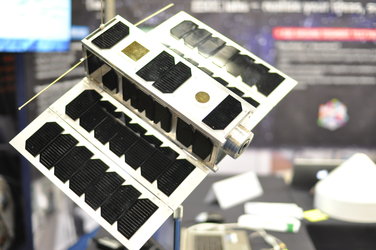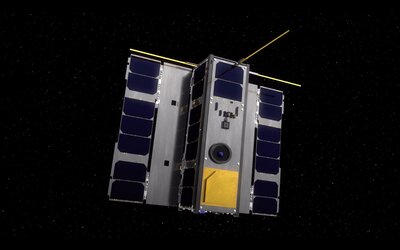OPS-SAT Mission Team Wins International Operations Award
The OPS-SAT Mission Team has been awarded the 2023 International SpaceOps Award for Outstanding Achievement. The award recognises exceptional mission contributions and effort in overcoming challenging space operational conditions. Congratulations to the team!
Outstanding Achievements
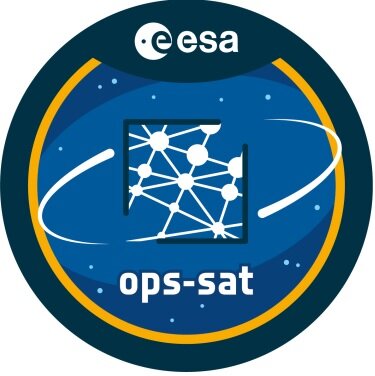
OPS-SAT was the world’s first mission dedicated to improving mission operations and testing new satellite control technology.
Coined the flying laboratory, and funded by GSTP, OPS-SAT was the first open, in-orbit testbed for new satellite software and applications. Equipped with a powerful on-board computer, this small 30 cm cubesat enabled the testing of innovative software solutions and many industry-first achievements.
OSP-SAT was also the first nanosatellite owned and operated by ESA. After its successful launch in 2019 the mission achieved its simple, yet influential, prime objective of allowing in-flight experimentation on mission critical operations. Brand new communication prototypes where demonstrated, which were then used on future ESA missions.
Novel Users
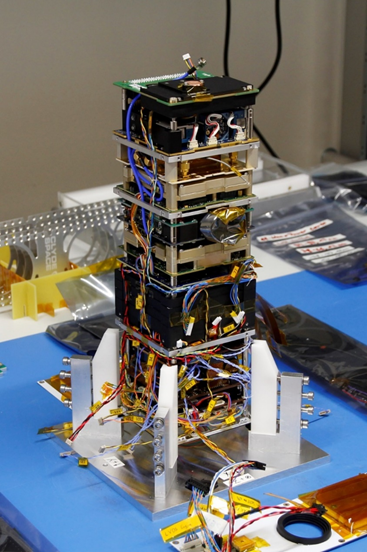
Users – known an experimenters – with no embedded software skill beyond conventional scripting experience were able to control the satellite as it passed over the ESA ESOC Mission Control Center in Darmstadt, Germany.
Different European researchers, universities, startups, companies and space agencies are able to control the satellite by uploading new software cases, similar to an App, via a preloaded software framework. Anyone who wanted to test an idea in space could become an experimenter. The spacecraft is completely reconfigurable and recoverable, with a powerful and reconfigurable field programmable gate array. Every aspect of the satellite’s onboard experimental software can be changed. These critical and mission enabling inflight experiments are normally off-limits to larger, more conventional ESA satellites.
The unique approach to software and data management was highly beneficial in the early orbit phase of the OPS-SAT mission. In fact, a communication problem caused by on onboard issue with the receiver and loss of the high-power amplifier at the ground station resulted in an extended nine-month commissioning phase. The team overcame this issue by commissioning the spacecraft using algorithms loaded on the experimental onboard processor, rather than sending the commands directly from a ground station. This opened the door to new ways of commissioning spacecraft in the future.
Over 220 different onboard experiments have been performed, covering every aspect of mission and spacecraft control. OPS-SAT has also been integrated into many University and ESA courses. Its inherent, built-in robustness allows untrained students to safety interact directly with the satellite, bringing the excitement of live operations directly into the classroom.
Looking Ahead
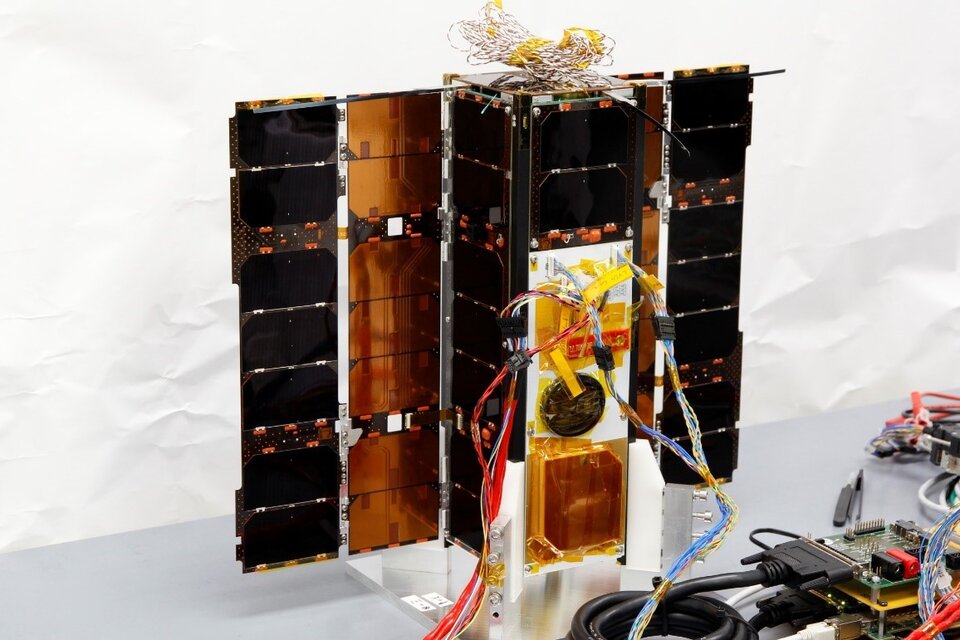
OPS-SAT was the first satellite studied in the CDF, funded by ESA's General Studies Programme (now Discovery). Two parallel industrial contracts were then placed a year later – one led by TU Graz and another by GOMSpace – and funded through GSTP. GSTP was instrumental in the later B2CDE implementation phase, committing to the spacecraft and launch opportunity. The mission consortium was led by TU Graz and the development of the ground segment and operations were funded by ESA ESOC.
The OPS-SAT Mission Team are now working hard on extending the OPS-SAT mission, with its continuing operations and development of a second-generation satellite. The new satellite, developed through ESA’s ARTES SCYLIGHT programme, will allow experimentation on optical ground to space and quantum-based communication.
The mission, the satellite and its continuing legacy would have been impossible without the exceptional dedication of the team. Congratulations to all those involved – from ESA, industry and representatives of the participating member states. The International SpaceOps Award will be awarded at the 2023 SpaceOps Conference in Dubai, United Arab Emirates.





